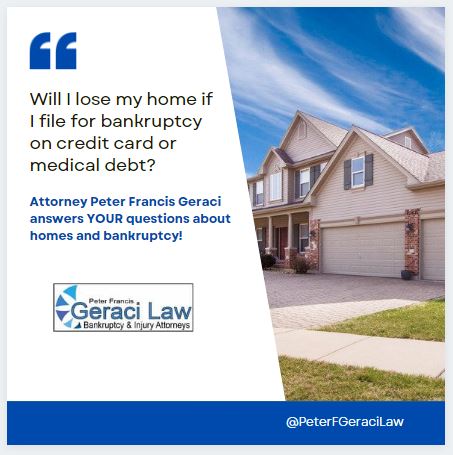Check out the article written by Attorney Peter Francis Geraci at https://www.infotapes.com/articles and others. This is an ongoing change, this article originally written 11/22/2022.
There are three branches of Government in the United States, according to the United States Constitution. The legislative branch charged with making the laws. The executive branch, which is the president, in his various departments such as the Department of Justice or the Department of Education, have no power to make any laws. So when the senator from MasterCard, now president Joseph Biden, says that student loans are discharged, courts, which are the third branch of government, rule on whether or not he is violating the U.S. Constitution by trying to legislate by Executive Order.
What does this mean to you if you have student loans? Student loans used to be dischargeable in bankruptcy. Bankruptcy is a federal law. Bankruptcy law was made by the United States Congress, voted on by the Senate and the house of representatives. When Joe Biden was a Sen., he represented the state of Delaware. He was commonly known as the senator from MasterCard, because that was where MasterCard at its headquarters, where it gave Joe Biden and other politicians a lot of money. Joe Biden and some other politicians like his friend Charles Grassley of Missouri, change the bankruptcy law so that student loans were no longer dischargeable in bankruptcy, except if there was a showing of “undue hardship”
“undue hardship” was almost impossible to prove in bankruptcy proceedings. The Justice Department represented the Department of Education and all government insured student loan cases trying to prove undue hardship, and they fought it to the extreme, and opposing terminal cancer patients discharge of student loans on the grounds that they might get better so what is Joe Biden trying to do now? He is ordered the Justice Department to be less aggressive, but still to examine a whole bunch of factors in determining if there is a student loan discharge possible.
The problem with this is that under the current bankruptcy law you not only have to file a bankruptcy case, but you have to prepare a lawsuit within the bankruptcy case called an adversary complaint, and in that adversary complaint you have to set out the factors that you think aloud discharge. When the new Justice Department guidelines are finalized, the Justice Department attorneys have now been ordered not to be so terrible and opposing discharges. But that does not mean that student loans will be dischargeable in bankruptcy to any great extent, because judges still have to rule on it and judges follow the law, not Justice Department guidelines.
If any of our fine politicians are worried about student loan discharge, what they should do is amend the bankruptcy law to permit discharge of student loans after period of time, based upon all the other bankruptcy factors, and either chapter 7 or 13. Sen. Elizabeth Warren and Sen. Richard Durbin propose such a bill two years ago and it is gone nowhere so stay tuned.
If your purpose in filing bankruptcy is to discharge her student loans, and they are not dischargeable in programs that already apply for on your own, it is still going to be an uphill battle.
Dial 1-800-CALL-PFG for a free phone mini-consultation, or make an appointment online 24/7 at www.infotapes.com. Bankruptcy laws are in place to help you. Who knows bankruptcy like Geraci Law? Geraci Law has 35,000 5-star reviews ![]() since November 2016!
since November 2016!
Read ALL ABOUT DEBT RELIEF at www.bankruptcybookbypeterfrancisgeraci.com.










